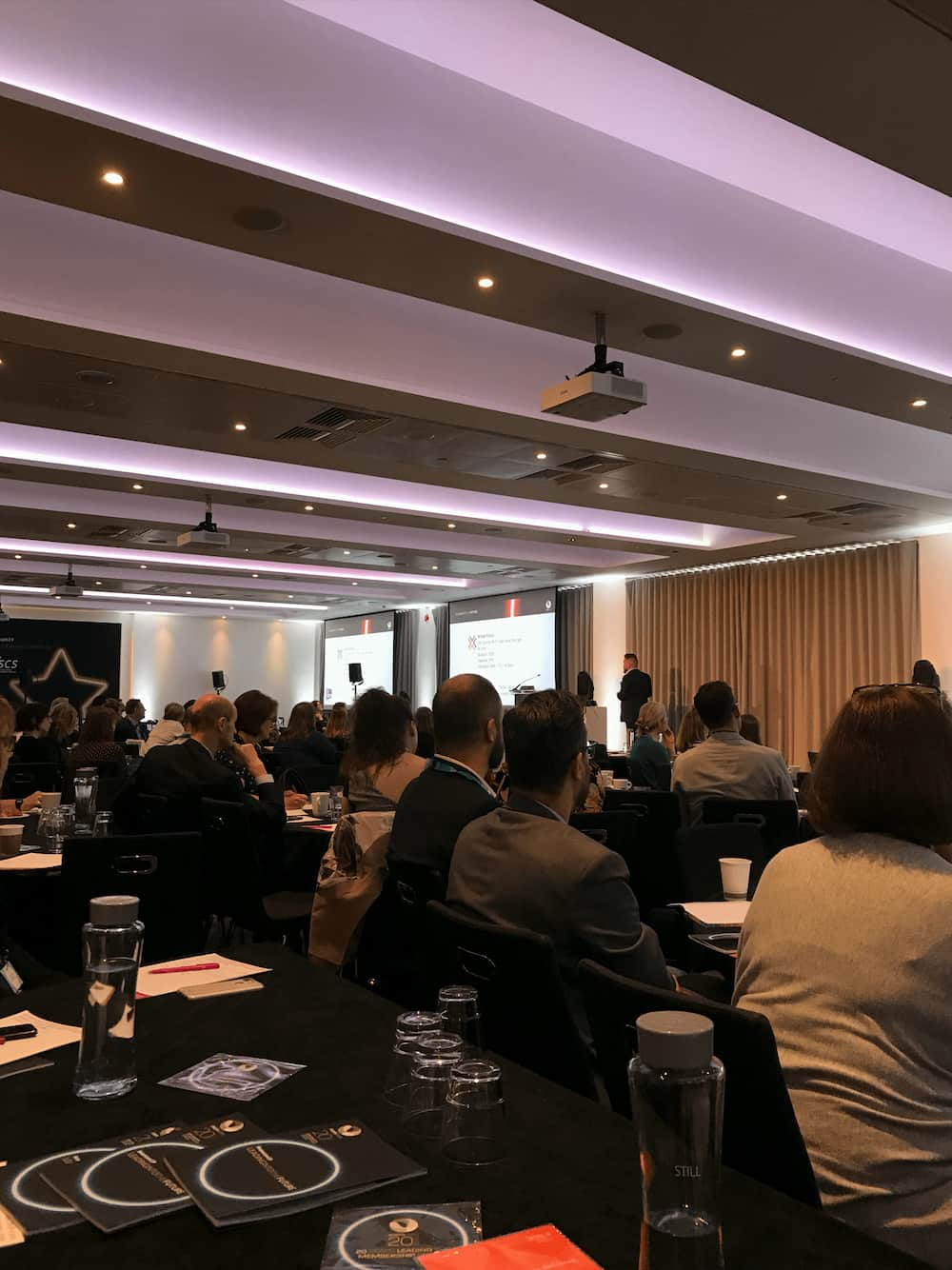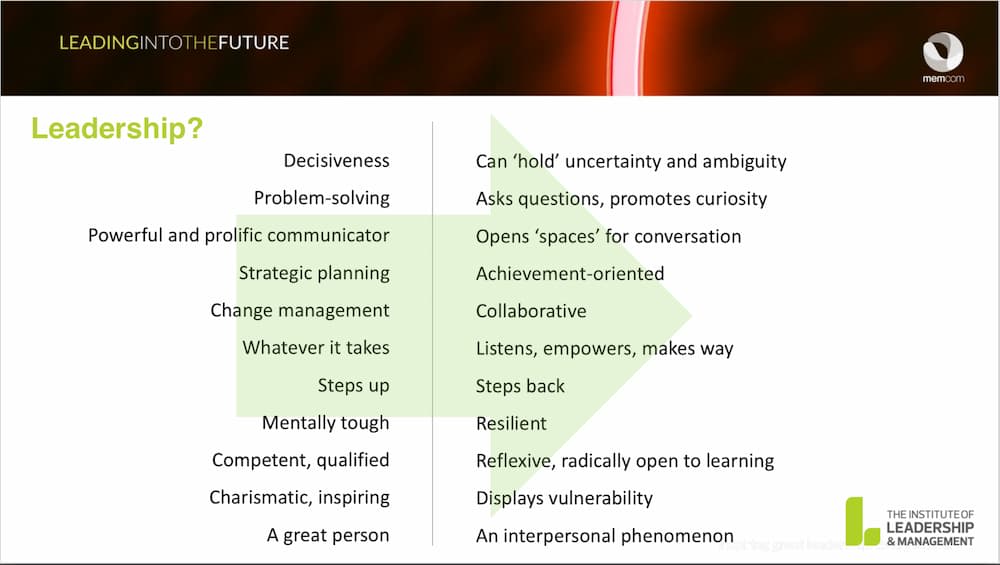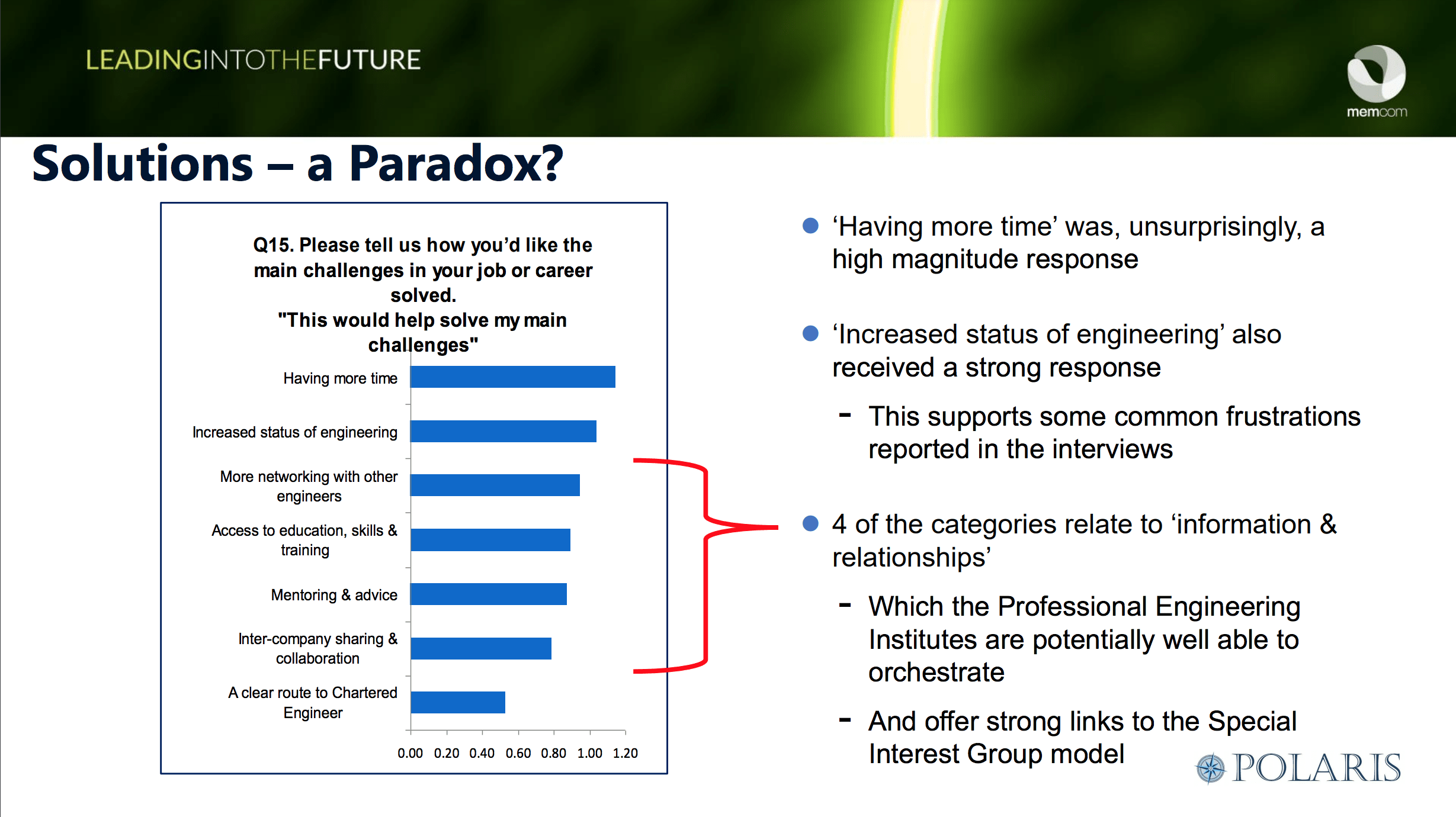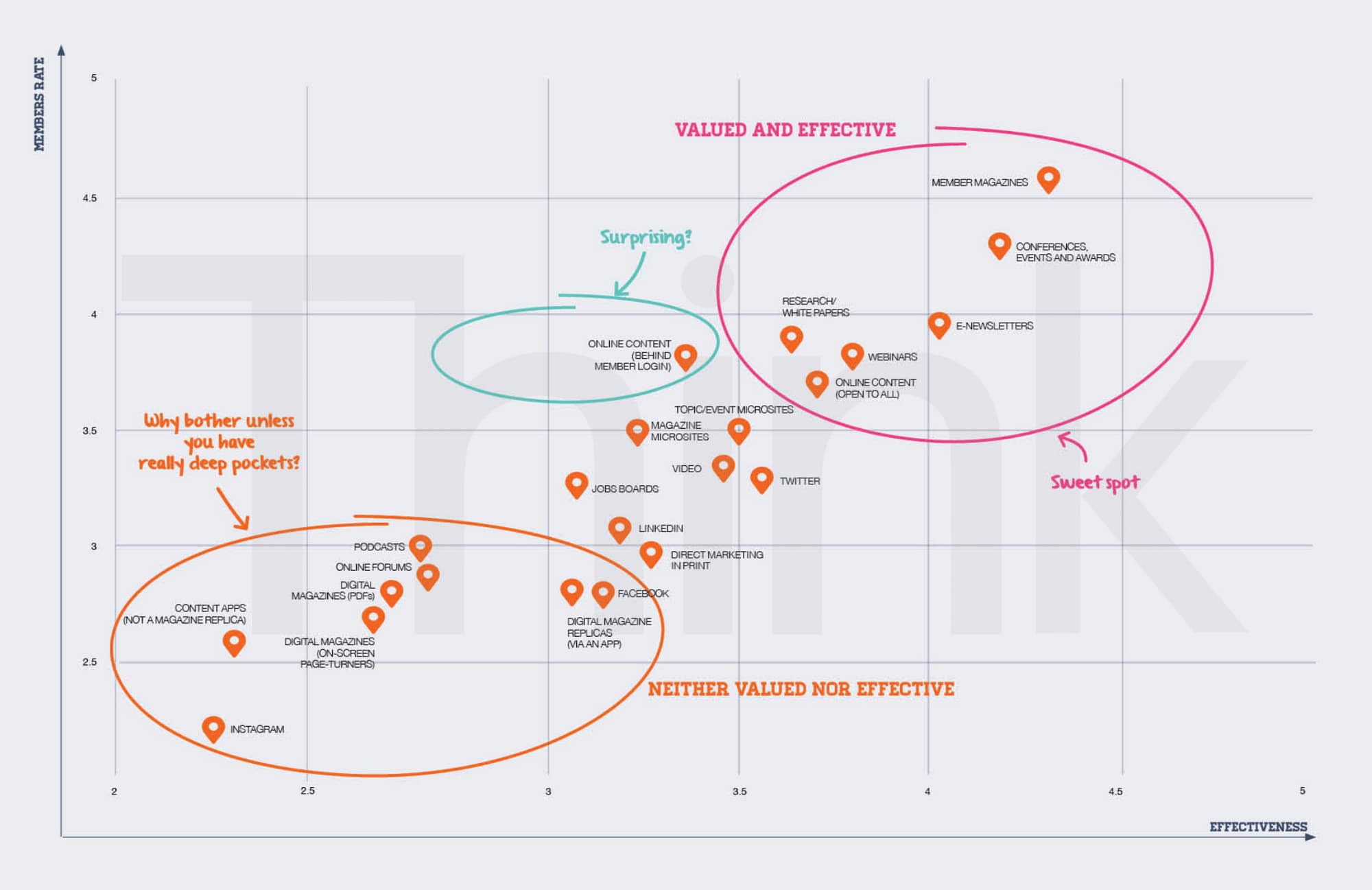The Guild team joined Memcom at their recent conference, Leading into the Future, and wanted to do a quick round-up of a few takeaways from a handful of the sessions we attended.
Lee Warren: How to Persuade Anyone To Do Anything - (well, almost)
Lee argued that you need to remember HAM PIE. First, win their hearts and minds. Then, explain your messaging through Pictures, Interest and Enthusiasm. Inspire your audience with a lively image and be excited about what you’re delivering.
Furthermore, it’s about how you frame things for your audience. An example: the same group of people were asked “Should we reduce the voting age to 16” and 56 % said no, whereas when asked “should we give 16-18 year olds the right to vote” 66% said yes. Reframe what you’re saying.
Next, refocus your pricing into a deal for your members: anchor it differently. For example if you see £5 first, and then £500 then the latter looks huge. However, if you see £5000 first, and then £50 then the latter looks super cheap. Furthermore, the more specific a number is, the better. £179.64 is more believable than £200.
Reciprocity is good: what can you do for your audience? The second that someone feels that they owe you something they’re more likely to help you out or buy something from you.
Lee Warren, Speaker & Author

Phil James: Leadership in the age of change
Phil began his talk by disagreeing with the statement that we are in an “age of change” that may be different to other ages. He reviewed our world as being VUCA (Volatile; Uncertain; Complex; Ambiguous) or BOCA (Blurred boundaries; Overloaded; Complex; Addicted to tech). However, as Phil argues,
"Change is part of the human condition. It’s about how you manage that change. VUCA/BOCA are structures to explain that we are feeling 'out of control' and that this isn’t comfortable for us. Assumptions about systems are problematic, and also systematic of the fact that there are so many problems”.
Phil refers to Chris Pearse’s 5 Reasons Why Leadership is in Crisis, and suggests that these may be underlying reasons for us feeling a sense of instability within leadership.

He ends his talk with suggesting that the way to get around the problems is to work together in social spaces to navigate the constant change, and create plans that are “good enough for now”, as change will continue to affect these plans.
“Innovation is only possible through conflict and diversity.”
Phil James, Chief Executive, Institute of Leadership and Management
Sir Brian Burridge: Future Trends - Millennials, Minefields and Members: Navigating the Unknowns in Aerospace
Today’s picture for membership organisations is that they need to be independent, education-based authoritative figures, with the following four motivations for prospective members to join: (1) cheap; (2) easy; (3) frictionless; (4) relevant and focused on what the member needs.

If you can make your members stay on with you, they become your ambassadors. One way of unlocking engagement and retention is unlocking the M word: millennials. And changing the trend that membership organisations are no longer about passions, but about career development needs. Something transactional.
Sir Brian argues that the world has now adopted the US startup culture of “fail fast; fail cheap”, and millennials are calling for different things: greener, cleaner, global connectivity, work experience and more. They want interaction and experience, digital access and online content. He argues that networking is changing, and business cards are dying.
"It's no longer networking for the sake of it. Its why you’re networking. Don’t just network for the sake of it. Remember that our current assumptions about networking are wrong, and traditions are outdated. Don’t let your cultural history drag you down.”

Sir Brian argues that the first step for membership organisations is to have sound reputational foundations based on ethics, environment, diversity, and all the conversations that millennials will engage with. Then, make sure you deliver true CPD – structured, modular CPD which is easy to use. It’s no longer about who you know, it’s about utility.
Sir Brian finished on a list of his top tips:
- Believe your data: disregard the permafrost. Understand the truth of your survey data.
- Clarity and focus of mission: communicate the context in which it fits. You can’t just say “this is good” anymore. You have to prove why it is.
- Simplicity of messaging: you have 20 seconds to explain why I should do what you’re asking me to do.
- To campaign or not to campaign: what would the market like to hear from you? To get millennials you need to have a stance.
- Evidence: apply improvements continuously.
- Communicate over and over and over again: tiresome but keep doing it, across different media too.
Sir Brian Burridge, Chief Executive, Royal Aeronautical Society
Jackie Scully: The future of membership organisations (in a post-membership world)

The future of communications can be worked on from Jackie's following 10 C's.
- C for Campaign. You need to have a stand point. You can’t change the world but you can change the conversation. Take on an agenda. Start a conversation.
- C for Connection. Engineer meaningful conversations.
- C for Crunching data. You’ve got to back up what you’re saying with numbers.
- C for Curiosity. What is interesting? Try to do targeted long reads.
- C for Conversions. Think like a content marketer. Think: "What am I trying to achieve with each piece of material?" Make connections between each piece/article. Listicles and filler pieces aren’t enough anymore.
- C for Creative solutions. There’s a shift in revenue generation these days to be about content. However it's important to keep using different streams and media.
- C for Collaboration. Work with other content brand publishers. Partner and collaborate.
- C for Conversations. Get people to talk together. Even via voice. Podcasts are super valuable these days. Audio is sometimes better than video.
- C for Curation. Innovate using print. Collections of essays and big thinking are popular at the moment: try to speak about the unspoken.
- C for Confidence. Know your audience really well: think outside the box. Follow the new “rethinkance” movement.
- 11th bonus C for Chapters. Book sales are only going up these days so join the movement. The more you do long form series, the more your members will see that you're about meaningful content.
Jackie Scully, Deputy Managing Director, Think
Guild's CEO and Founder, Ashley Friedlein published his open letter to membership organisations in which he refers to the ways that Guild might be able to help within the sector.
From the Guild team, thanks for a great Memcom 2019!
Try Guild 🤝
See for yourself how the Guild experience is different to WhatsApp, Slack, LinkedIn or Facebook Groups. Guild is a safe space to connect, communicate and collaborate with others.
Join us on a platform that is purpose-built for professionals and businesses.
- Just want to join some groups? Simply join Guild and then look through the discoverable groups and communities to find relevant ones to join
- Thinking of running your own community? With an elegant and simple to use, mobile-first UX you’ve got everything you need to start a community - custom branding, analytics, group and user management and support. Get started with your own community here with our free and paid options
Contact us if you want to know more or have any questions.